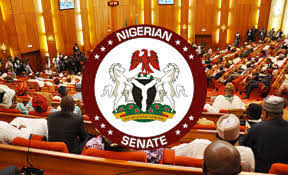The Senate has taken a major step towards forcing ministries, departments and agencies (MDAs) in the country to make use of Made-in-Nigeria vehicles by introducing a new bill.
The bill which has passed the second reading in the Senate, is titled ‘Local Automotive Industry Patronage Bill, 2025’. It is sponsored by Patrick Ndubueze, senator representing Imo north.
Senator Ndubueze originally introduced the bill in October 2024.
Leading debate on the bill during plenary, Ndubueze said Nigeria’s overdependence on imported automobiles has continued to weaken the naira and damage local industries.
“Any country that aims to achieve steady economic growth and development must have a policy that encourages and provides a framework for local production,” he said.
“It is also important that goods and services are produced locally, as its ripple effect is a reduction in imports and a rise in exports (balance of trade).”
The senator said Nigeria had failed to institutionalise the use of indigenous brands and instead glorified foreign products of no superior value.
“Today we see the wobbling of the naira, and with every plunge, inflation bites harder,” he said.
Ndubueze said 54 automobile manufacturing licences had been issued in Nigeria, noting that only six companies remain operational due to forex shortages and poor infrastructure.
He added that many automobile firms had moved to Ghana, where they are now setting up plants to produce vehicles for the Nigerian market.
“How do we stem the free fall of the naira if we cannot address our appetite for foreign goods?” he asked.
“How do we support the development of indigenous brands if the biggest spender, year on year — the government — refuses to buy made-in-Nigeria goods?”
He proposed that at least 75 per cent of vehicles procured by public officers and civil servants be locally manufactured, not merely assembled.
“This is the first step to saving our economy, protecting our currency, and creating jobs for our people,” he said.
He said only firms with at least 70 per cent Nigerian workforce, 75 per cent local research and development (R&D) spend, and technology such as robotic painting machines and electrophoresis systems should qualify as local manufacturers.
“Government support for local industry should be seen as both strategically important, a long-term investment, and a national security imperative,” he said.
He cited China, India, and Malaysia as examples of countries that banned imported cars in their early years to grow domestic industries.
“Today, these countries have perfected their local processes, and we are now importing their products, some of which cannot compete with our locally manufactured vehicles,” he said.
Mohammed Monguno, senate chief whip and senator representing Borno central, said the bill would give legal backing to an existing directive by the federal executive council (FEC) on the use of local products.
“This law will insulate the directive from the whims and caprices of subsequent administrations who may want to reverse it,” he said.
Barau Jibrin, deputy senate president and the presiding officer, said the bill would “provide jobs for automobile engineers in the country and encourage more investors to move into the sector.”
The deputy senate president said the bill will “strengthen our economy and the naira and galvanise the automobile industry.
“We hope the process to get it assented to by the president will be expeditious,” Barau added.
The bill was referred to the senate committee on public procurement for further legislative scrutiny, with a report expected within four weeks.
The senate has also commenced an investigation into alleged violations of the federal character principle in recruitment and appointments across MDAs.
The probe began with an interactive session between the senate committee on federal character and heads of key federal agencies.
The inquiry follows a resolution passed on March 25 after a motion sponsored by Osita Ngwu, the minority whip and senator representing Enugu west.


